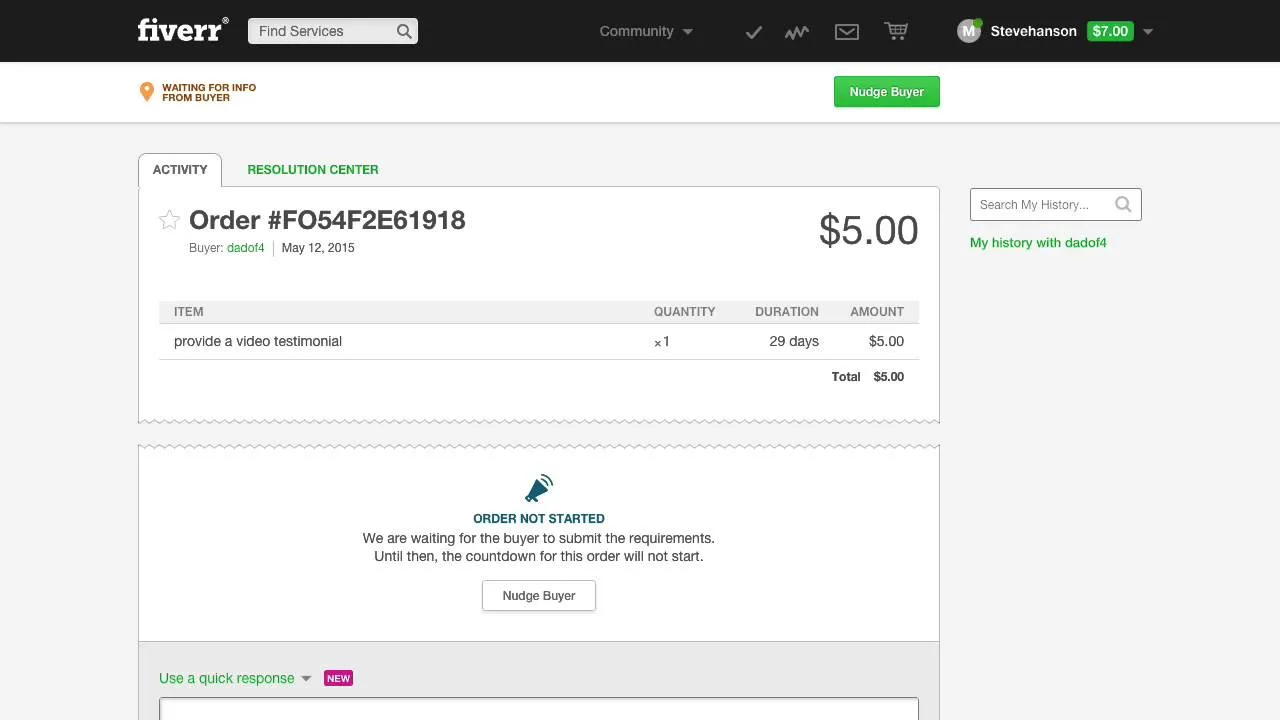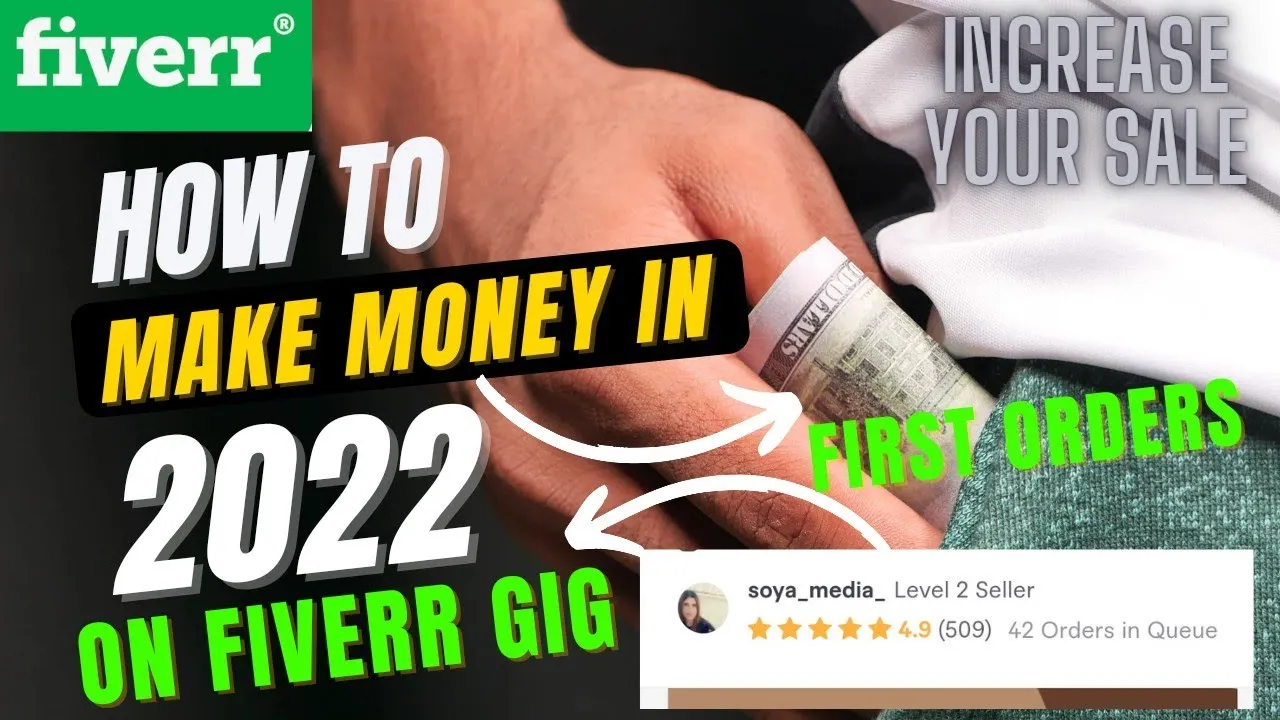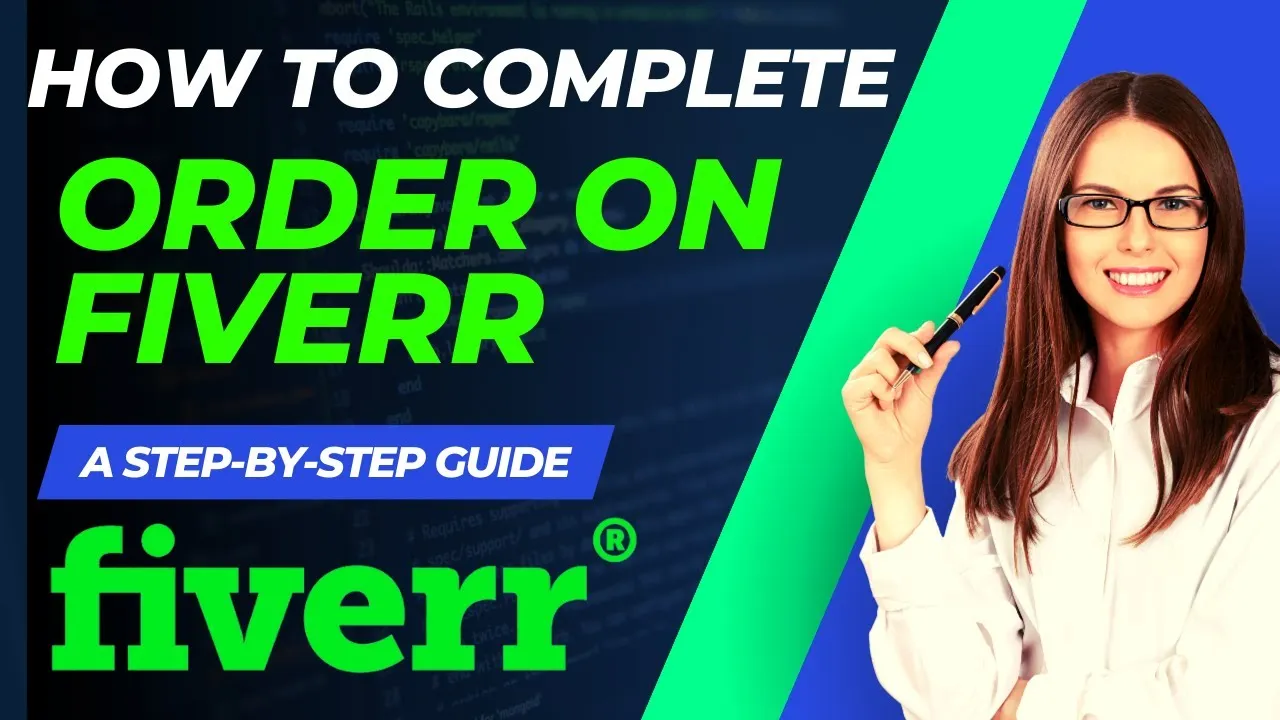When you think about selling services online, platforms like Fiverr often come to mind. Fiverr is a marketplace where freelancers can offer various services—from graphic design to writing and programming. But have you ever wondered about the legal aspects of the work you receive from Fiverr? Specifically, can you copyright a Fiverr order? In this post, we’ll dive into copyright basics and how they apply to services rendered on Fiverr, helping you understand what rights you have over the material you commission.
2. What is Copyright? A Brief Overview

In simple terms, copyright is a legal concept that protects original works of authorship. These works can include literary, dramatic, musical, and artistic creations. Here’s a quick rundown of copyright essentials:
- Originality: For a work to be copyrighted, it must be original. This means it should exhibit some degree of creativity and be the product of the author’s effort.
- Fixation: The work must be fixed in a tangible medium of expression. This could be anything from a written document to a digital file. If it’s recorded or written down, it’s likely protected.
- Automatic Protection: You don’t need to register your work with a government entity for copyright protection; it exists as soon as the work is created. However, registration provides legal advantages in case of infringement.
Copyright gives the creator exclusive rights over the use of their work, which generally includes:
- The right to reproduce the work.
- The right to distribute copies of the work.
- The right to prepare derivative works based on the original.
- The right to display the work publicly.
Now that you have a handle on what copyright is, let’s take a closer look at how these rules intersect with your Fiverr orders and the rights you might have as a client versus the rights of the freelancer.
Also Read This: How Many Users are on Fiverr? A Comprehensive Overview
Fiverr's Terms of Service

When you decide to use Fiverr, it’s crucial to familiarize yourself with their Terms of Service. These terms outline everything from user responsibilities to rights over the work being created. It's like the rulebook of the platform, and knowing it can save you a lot of headaches down the road!
First off, Fiverr’s terms specify that when you commission a gig, you are actually buying the rights to the work produced. However, there are nuances to think about. Here's a quick list of key points from the Terms of Service:
- Non-Exclusive Rights: Unless specified otherwise, you gain non-exclusive rights to the delivered work. This means the seller can still sell or use it elsewhere.
- Intellectual Property: You should clarify who holds the copyright and other intellectual property rights, as these can differ based on the contract you agree to with the seller.
- Revisions and Refunds: Fiverr has a clear guideline for revisions and refunds, which can affect your content ownership if not adhered to properly.
- Applicable Laws: The service operates under specific legal frameworks, so understanding your rights under these laws can help you navigate any disputes.
Essentially, while Fiverr does provide a platform for outsourcing creative work, understanding these terms can give you more clarity about your rights regarding copyright and ownership.
Also Read This: Accurate Assessments: Unveiling the Reliability of QuillBot’s Plagiarism Checker
Ownership of Deliverables: Who Owns the Work?

So, let's get to the heart of the matter: who owns the work created through a Fiverr order? This is where it can get a bit murky. Generally, ownership depends on a few factors—mainly the agreement between you and the Fiverr seller. Here’s the breakdown:
| Scenario | Ownership Rights |
|---|---|
| Standard Gig (No Specific Agreement) | You usually receive non-exclusive rights. The seller retains the right to reuse and resell the work. |
| Custom Order with Specific Agreement | If you negotiate ownership in the order details, you may obtain exclusive rights. Ensure this is clearly outlined! |
| Work For Hire Agreement | If a "work for hire" contract is explicitly stated, you typically own all rights to the work upon delivery. |
It’s essential to have a clear conversation with your Fiverr seller about ownership before the order is completed. If you're looking to claim copyright or exclusive rights, make sure you put it in writing. Communication is key!
In summary, while Fiverr creates an amazing opportunity for obtaining creative work, the conditions of ownership can vary widely. Understanding these nuances ensures that you won’t face unexpected surprises later on!
Also Read This: How to Work on Fiverr: A Complete Guide for Freelancers
How to Protect Your Fiverr Order

If you've recently placed an order on Fiverr, you might be wondering how to protect the digital content you've commissioned. It's a valid concern, especially if that content plays a crucial role in your business or creative endeavors. Here are some straightforward ways to safeguard your Fiverr order:
- Communicate Clearly: From the very outset, ensure that your requirements and your expectations are outlined clearly in the brief. This leaves no room for misunderstandings.
- Request Full Ownership: Always ask the seller to transfer full rights to the work once completed. This should be discussed and set in writing during the order process.
- Keep Invoices and Documentation: Save all communications, orders, and invoices related to your Fiverr purchase. Should any disputes arise, having these records will serve as a strong defense.
- Use Watermarks: For visual content such as images or videos, consider using watermarks until you officially receive the final version. This helps ensure that your content isn’t misused prior to transfer of rights.
- Register for Copyright: While you automatically hold copyright to original works, consider officially registering your content with a copyright office for added legal protection.
By taking these steps, you can enjoy peace of mind, knowing that your Fiverr order is as secure as possible.
Also Read This: What is a Search Tag on Fiverr?
Steps to Copyright Your Work
Copyrighting your work, especially content created through a Fiverr order, is a vital step in protecting your intellectual property. Here’s a simple guide on how to copyright your newly acquired materials:
- Determine Eligibility: Verify that the work is original and created by you, or in this case, ensure your Fiverr seller agrees to your ownership of the work.
- Gather Documentation: Collect all relevant documents, including your order confirmation, communication with the seller, and any drafts or final versions of the work.
- Fill Out the Application: Visit the U.S. Copyright Office's website (or the relevant body in your jurisdiction) and complete their online application form. Be prepared to provide details about the work, your information, and how it was created.
- Pay the Fee: Most copyright applications require a fee. This can vary based on the type of work you’re registering, so check the current rates.
- Submit Your Work: If required, provide a copy of your work along with your application. This can usually be done digitally for many types of works.
- Wait for Confirmation: After submitting, you’ll receive a confirmation and, once approved, you’ll get a certificate that proves your copyright ownership!
Copyrighting your work can seem daunting, but following these steps will ensure that your creative efforts are well-protected.
Also Read This: Is Fiverr in China? Exploring the Availability and Impact of Freelancing Platforms
7. Frequently Asked Questions about Copyright on Fiverr
When it comes to copyright issues, especially in a freelancing environment like Fiverr, it's common to have questions. Let's tackle some of the most frequently asked questions to clear up any confusion.
- Can I copyright my Fiverr order? Yes, you can copyright your Fiverr order if you are the original creator of the content. This applies to things like artwork, written content, or music. However, be aware of any usage rights granted in the Fiverr contract.
- Who owns the rights to the work completed on Fiverr? Generally, the creator (the seller) retains the copyright unless specified otherwise in the Fiverr agreement. Always check the gig order’s terms to clarify ownership rights.
- What if I need exclusive rights to the content? Communicate your needs clearly with the seller. You can negotiate for a full rights transfer upfront, often at an additional cost. Just make sure this is included in the contract.
- Can I use Fiverr-created content commercially? If you have full rights to the content, you can use it commercially. If not, you may need to seek permission or purchase additional rights.
- What should I do if someone else copies my Fiverr order work? If you find your work is being used without permission, gather evidence and reach out to the infringing party first. If they don’t respond, consider pursuing legal action to uphold your rights.
8. Conclusion: Navigating Copyright in Freelance Work
Understanding copyright in the context of Fiverr can feel a bit overwhelming, but it’s essential for protecting your creative work. Here are a few key takeaways:
- Know your rights: Always be aware of who holds the copyright for the work you order or create on Fiverr.
- Discuss ownership: Openly communicate with your Fiverr seller about copyright and ownership before finalizing the order.
- Document everything: Keep records of agreements and communications regarding copyright rights.
- Seek professional advice: If in doubt, consider consulting a copyright lawyer for personalized guidance.
Navigating copyright in freelance work isn’t just about legalities; it’s also about respecting creators and valuing their work. By understanding your rights and responsibilities, you can foster a healthy exchange in the vibrant Fiverr marketplace. Happy freelancing!



